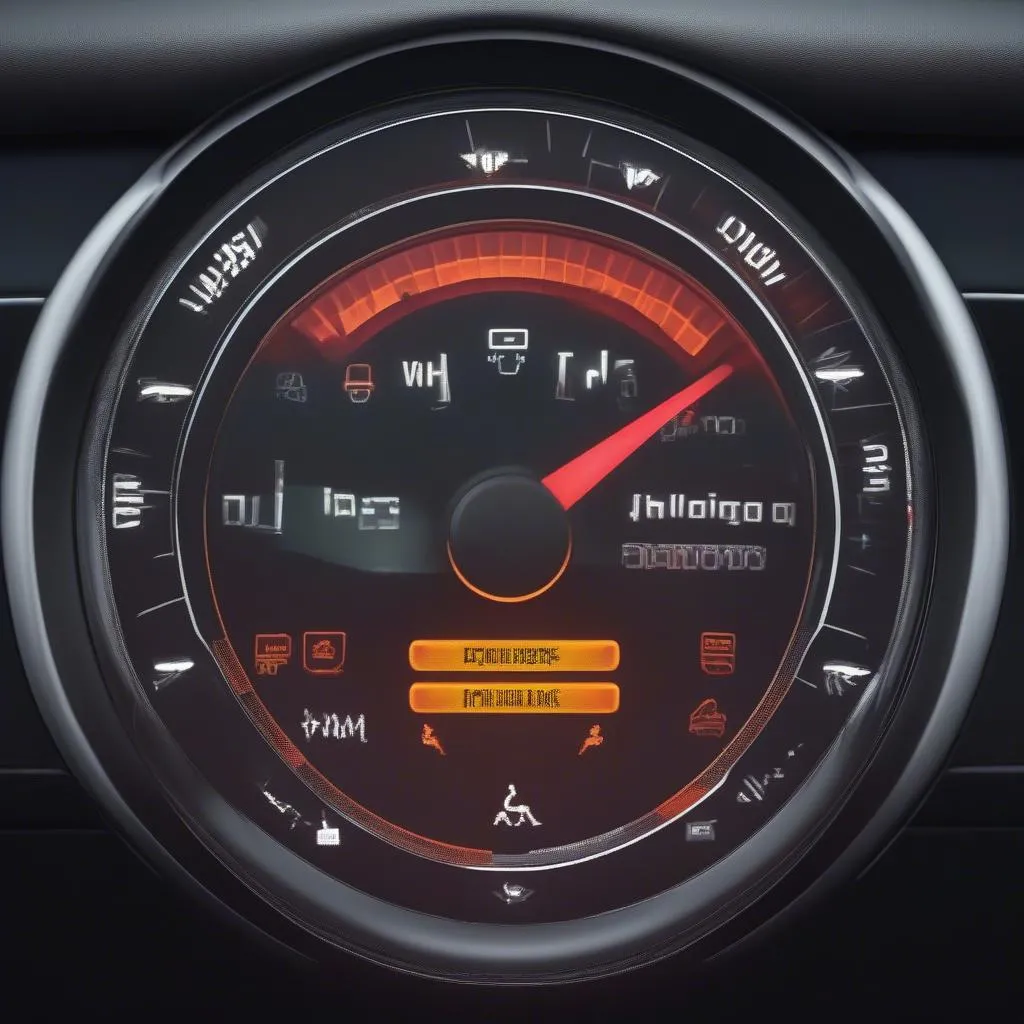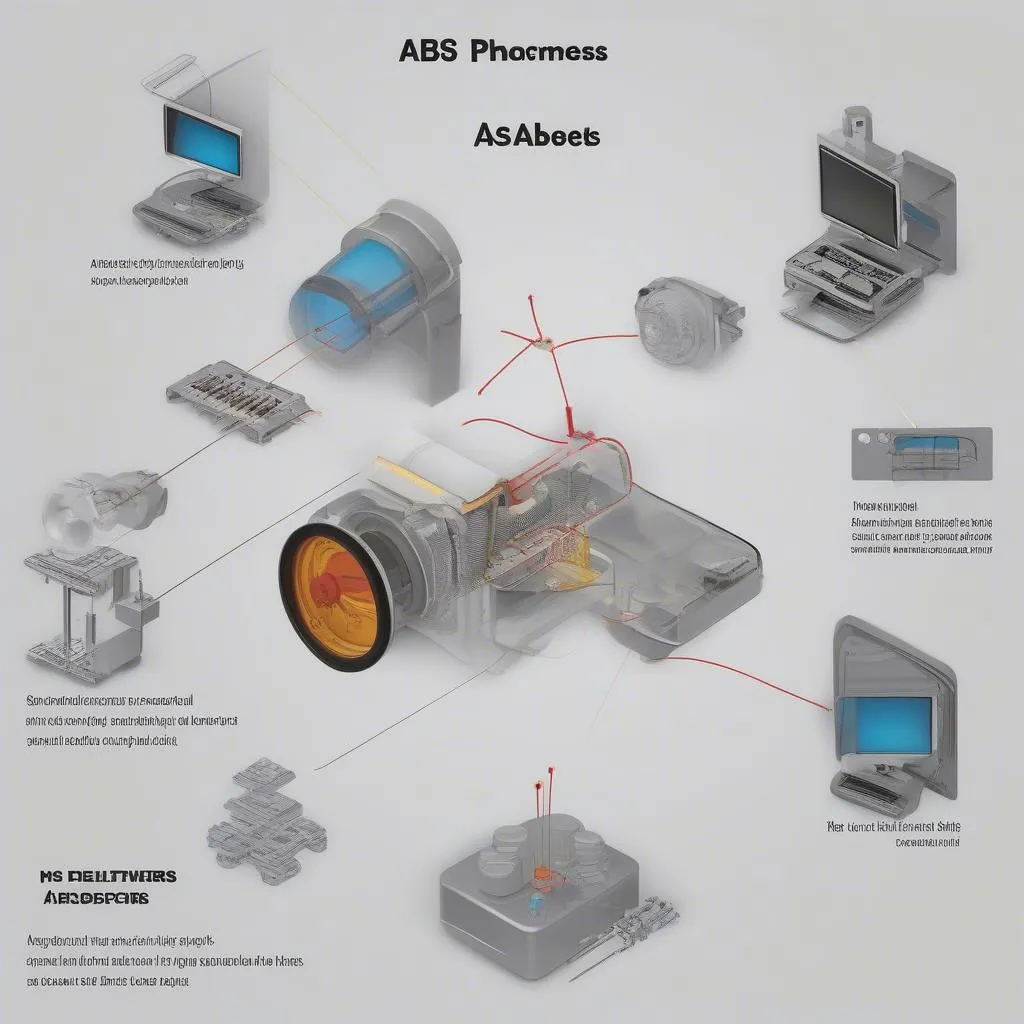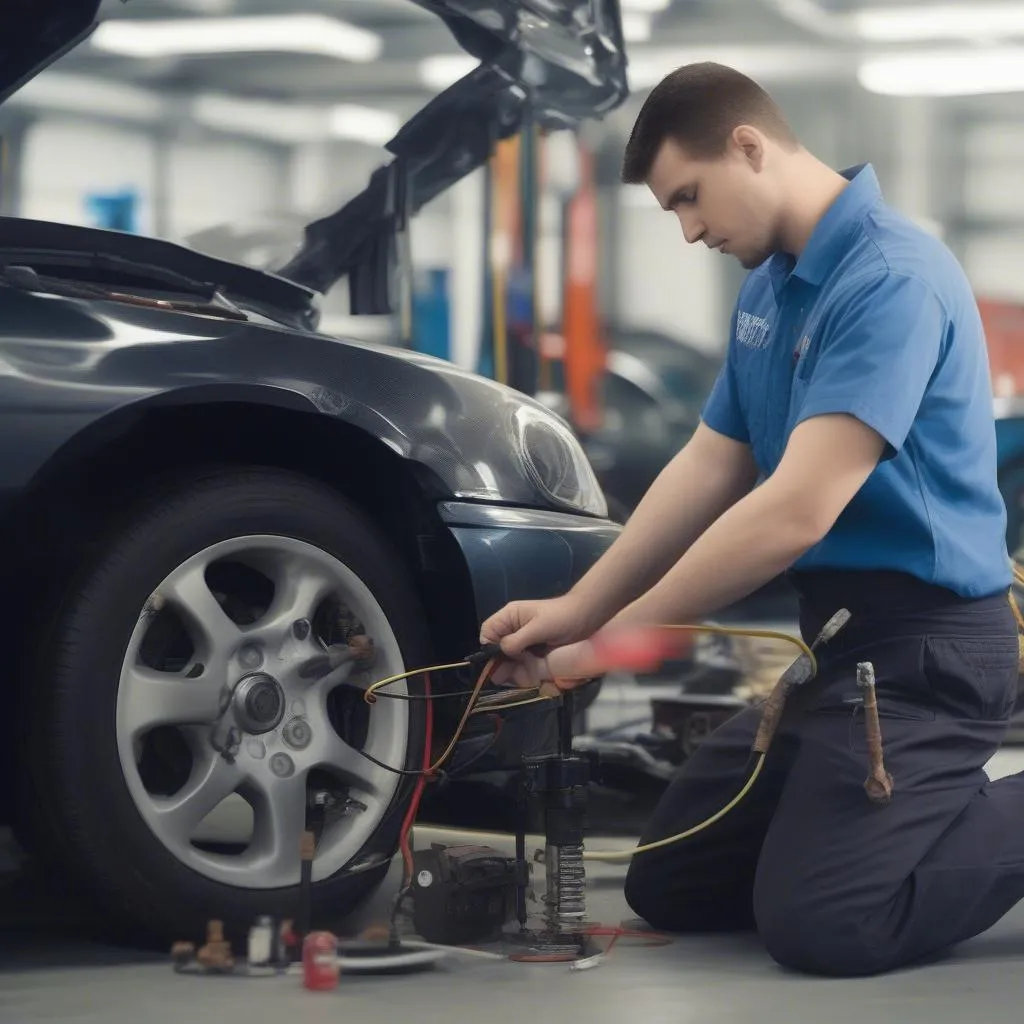Have you ever wondered what those mysterious letters “ABS” mean on your car’s dashboard? It’s a common question, and one that’s essential to understand for every car owner. Today, we’ll dive into the world of ABS, unraveling its meaning and importance.
The Meaning of ABS: A Deeper Look
ABS stands for Anti-lock Braking System. This clever technology is designed to prevent your car’s wheels from locking up during sudden braking, ensuring you maintain control and avoid skidding.
How ABS Works: A Simple Explanation
Imagine you’re driving down a slippery road, and suddenly, a deer jumps out in front of you! You slam on your brakes, but your wheels lock up, sending your car into a dangerous skid.
ABS prevents this by rapidly pumping your brakes, releasing and reapplying pressure. This allows your wheels to keep rolling, preventing you from losing control.
Think of it as a series of mini-brakes and releases, happening so fast you barely notice.
The Benefits of ABS: A Safer Drive
ABS offers numerous benefits that contribute to a safer driving experience:
1. Improved Stability and Control: As we mentioned, ABS helps maintain control of your vehicle during emergency braking, preventing dangerous skids and maximizing your ability to steer clear of obstacles.
2. Reduced Braking Distances: By keeping your wheels rolling, ABS can shorten the distance it takes to stop your vehicle, giving you precious seconds in an emergency.
3. Enhanced Handling in Challenging Conditions: Whether you’re driving on wet roads, snow, ice, or loose gravel, ABS helps to stabilize your vehicle and prevent skidding.
4. Less Wheel Wear: By preventing your wheels from locking up, ABS also minimizes wheel wear and tear, saving you money on tire replacements.
ABS and Different Vehicles: Understanding the Variations
ABS is becoming increasingly common in cars, trucks, and SUVs around the world. However, it’s essential to note that different manufacturers may have their own variations of ABS systems.
For instance, some systems may offer additional features like:
- Electronic Brakeforce Distribution (EBD): This feature automatically distributes brake pressure to individual wheels based on the vehicle’s load and road conditions.
- Electronic Stability Control (ESC): ESC works in conjunction with ABS to help prevent rollovers and maintain stability during high-speed cornering or sudden maneuvers.
ABS Warning Light: What Does It Mean?
If you see an ABS warning light illuminate on your dashboard, it’s a crucial sign to take immediate action.
This light indicates a potential problem with your ABS system.
Here are some common reasons for the ABS light to come on:
- Faulty ABS Sensor: These sensors are crucial for the system’s operation and can malfunction due to various reasons, including damage, wear and tear, or even a build-up of dirt or debris.
- Problem with the ABS Control Module: This module is the “brain” of the ABS system and controls its functions. If it malfunctions, it can disrupt the system’s operation.
- Low Brake Fluid Level: Low brake fluid can also trigger the ABS warning light.
- Other Mechanical Issues: In some cases, other mechanical issues related to your braking system may also cause the ABS light to illuminate.
It’s crucial to have your vehicle checked by a qualified mechanic as soon as possible. Ignoring the ABS warning light can lead to potential safety hazards.
Troubleshooting Your ABS: A Quick Guide
While it’s best to consult a professional mechanic for any ABS issues, here are a few basic troubleshooting steps you can try:
- Check the Brake Fluid: Ensure the brake fluid level is within the appropriate range. If it’s low, you may need to top it up or address a potential leak.
- Inspect the ABS Sensors: Make sure the ABS sensors are clean and free of debris. You can try gently cleaning them with a brush or compressed air.
- Reset the ABS System: In some cases, a simple reset of the ABS system may resolve the issue. You can typically do this by disconnecting the car’s battery for a few minutes and then reconnecting it.
The Importance of Regular Maintenance: Keeping ABS in Top Shape
To ensure your ABS system functions reliably, it’s essential to maintain your vehicle’s braking system. This includes:
- Regular Inspections: Have your car’s braking system inspected by a professional mechanic at least once a year.
- Brake Fluid Changes: Follow your manufacturer’s recommended schedule for brake fluid changes, as brake fluid can degrade over time.
- ABS Sensor Checkups: During regular inspections, ask your mechanic to check the ABS sensors for wear and tear.
Frequently Asked Questions (FAQs)
Q1: Is ABS mandatory in all cars?
A1: While ABS is becoming increasingly common, it’s not yet mandated in all countries. However, many countries have regulations encouraging the use of ABS in new vehicles.
Q2: Can I disable ABS?
A2: Disabling ABS is generally not recommended, as it can compromise the safety of your vehicle.
Q3: Can I install ABS on an older car?
A3: It’s possible to retrofit ABS onto older cars, but it can be a complex and expensive process.
Q4: Can I get ABS repaired at home?
A4: It’s not advisable to repair ABS at home, as it involves complex electrical and mechanical systems.
Q5: How often should I have my ABS system inspected?
A5: It’s a good idea to have your ABS system inspected at least once a year during your regular vehicle maintenance.
Conclusion
Understanding the meaning and importance of ABS is a vital aspect of responsible car ownership. By understanding how it works and the potential benefits it offers, you can embrace a safer driving experience. Remember, if you notice any warning lights or experience any issues with your ABS system, consult a qualified mechanic immediately.
Do you have any other questions about ABS? Share your thoughts in the comments below!
Need assistance with diagnosing and repairing your car’s ABS system? Our team of certified technicians is available 24/7. Contact us today via WhatsApp at +84767531508 for expert support.
 abs warning light
abs warning light
 abs system diagram
abs system diagram
 abs sensor inspection
abs sensor inspection